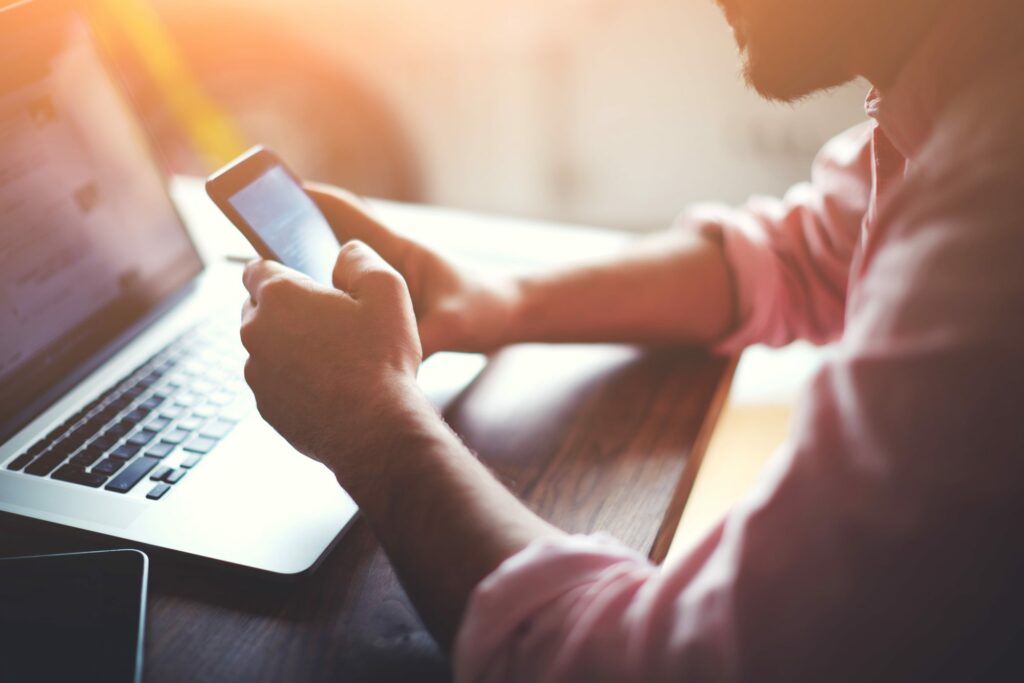Cybersecurity and online privacy are huge issues in 2022. Our most personal data, including our very locations, is vulnerable. If you had told someone fifty years ago that this sort of data would be at risk, they would have assumed we had tons of security protecting us.
Unfortunately, we have become incredibly complacent, allowing companies access to our data so that they can market to us and make our lives a little bit more convenient. There’s probably no going back, but that does not mean we need to accept low levels of security.
There are ways to protect your phone from both regular and cybersecurity breaches. Your phone should at least have a strong code so that a thief cannot get in, as well as cellphone theft insurance in case someone does get hold of it. You should also have a VPN turned on when using the internet.
However, there are a lot of mistakes people make which undermine the security of their phones. Here is what not to do when securing your phone.
Don’t: Use a Free VPN
VPNs are not expensive, with even the best costing less than $10 a month if you pay for a full year at once. But every $10 we spend on different subscriptions, including music and video streaming services, Apple Arcade, and any of the many available forms of entertainment add up. Paying another $10 a month for a VPN can be the straw that breaks the camel’s back.
As such, many people turn to free VPNs, assuming that even the worst VPN is better than nothing. Unfortunately, that is not the case.
There are excellent free VPNs, but they are usually the lite versions of paid services, and you cannot do much with them due to bandwidth limits. Any unlimited free VPN should not be trusted. By using their service, you’re giving the company access to all of your data, which they can sell or use against you.
A good VPN is important, but not having a VPN is better than using a dodgy free service.
Don’t: Skip Updates
Some OS updates are exciting. These are generally the ones announced at big events which change the way you’ll use your phone. But most updates fix minor bugs and are, at best, annoying. It is human nature to skip them until some future time when you’re not using your phone.
However, the small updates matter a lot because they are generally rolled out in order to deal with security vulnerabilities. These may be vulnerabilities that were always there, or they are threats that were developed since the most recent update. It is crucial to download updates sooner rather than later for this reason.
Don’t: Rely On Corporations
As modern consumers, we have to constantly question who we can trust. The simple fact is that capitalism works by being amoral. Companies exist to make money, and it is only the potential backlash of customers that forces them to stay honest. The problem in today’s world is that many of the biggest issues we’re worried about are almost impossible to assess. Do you have any idea which companies are using your data in a way you don’t like?
A side effect of this is that companies which put material measures in place to protect us seem like the ‘good’ guys. Apple recently implemented a feature that makes apps ask for permission before being able to track you, infuriating Facebook and Google and gaining our collective appreciation.
But this does not mean you can trust Apple. After all, they are just another corporation that will avoid doing anything not in the company’s best interests. Their recent feature is definitely welcome in our modern world, but it does not mean they are not abusing our privacy as much as any other company.
When it comes to privacy, never take it for granted that a corporation has your back. You should do what you can to protect yourself, even if your phone manufacturer seems to be one of the ‘good’ ones.
Cybersecurity and privacy issues drive a lot of our behavior in regards to our phones. Avoid the above mistakes so as not to undermine the good measures you’ve put in place.
